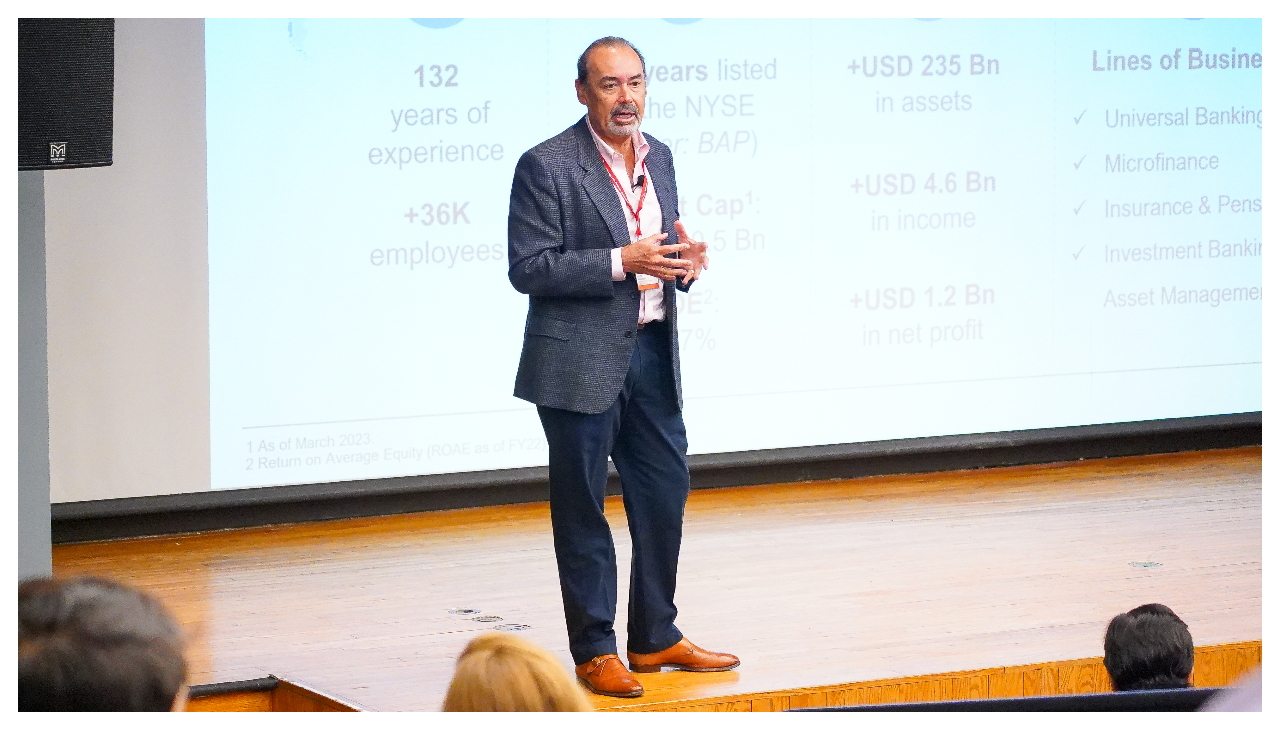
Companies investing in startups, and the delicate balance they hold
Discussing the relationship between companies and the startups they support, Walter Bayly Llona describes how the two can support and hinder each other.
On March 24, the Wharton Latin American Conference hosted several discussions surrounding Latin America, its businesses, and its future. These topics included discussing the use of renewable energy to the scaling of a global tech company.
One speaker giving a keynote address was Walter Bayly-Llona, who spoke on the relationship between a corporation and the startups it might invest in — or even found — to remain dynamic in an evolving market.
As the former CEO of CrediCorp — the largest financial holding company based in Peru, with a presence in neighboring countries and the U.S. — Bayly came to the Wharton Latin American Conference to discuss and share his experience with financial institutions.
Over his career, Bayly has garnered more than 40 years of work with various financial institutions, working alongside large corporations and small startups as he sought to make them profitable.
From his perspective, Peru’s relatively slow economic growth has provided them ample opportunity to look at how other nations build their economies and learn from their mistakes and their good decisions as they develop.
In order to get a better grasp of finance, Bayly traveled around the world to understand the cutting edge of finance. From his travels, he learned that the traditional way of business was not necessarily the best way; businesses needed to become more agile, more dynamic, more disruptive than the competition.
The solution he had found was using corporate venture capital investments to make startups that could create new things the company could not.
Given the size of many companies capable of investing long-term in startups — Bayly described how a 10-year funding plan could require $12 million a year for a payment app to get off the ground — the smaller companies could meet customer needs in a way the main company would be unable; not without arduous internal changes made.
Unlike most venture capital investments that only seek to get money in return, Bayly wanted to encourage giving these startups more freedom to operate while they worked on something new that would benefit the company.
He described how there was a fundamental difference in thought between large businesses and startups, which was how they measure their money, their successes, and their expenses.
A traditional board of directors, Bayly explained, does not mesh well with the startup idea of accepting failure. In startups, taking risks and accepting failure is common, whereas in other companies failure was failure.
RELATED CONTENT
But a partnership between the two would benefit them both. The large business would bring customers and money to the startup, while the startup would provide innovative ideas that the large business could not focus on, being restricted by its size and need to continue making money, and meet its current customers’ needs.
To make sure that a startup did not die from a lack of funds, Bayly advised to ensure a financial commitment in the long term, as a cut in funding could easily mean an end to the startup, making individual years of prior funding useless.
There is also a delicate balance between company’s and their startups.
If the startup is too distant, it cannot capture the value of being associated with a corporation, like not appealing to the same customers. But if they are too close, the bureaucratic elements of the company could restrain and smother the startup.
Similarly, startups reflect on their parent company, and any illegal activity (eg. money laundering) is associated with them, requiring some oversight into its inner workings.
To succeed, startups need to understand the decision making process of corporations, their appetite for risk, and what they want out of a deal in order to have a balance between the two.
But, Bayly stressed, there is no one set of good practices that can be memorized and carried out each time to ensure success. It ultimately relies on skilled labor and talented leaders to make their own success.











LEAVE A COMMENT: